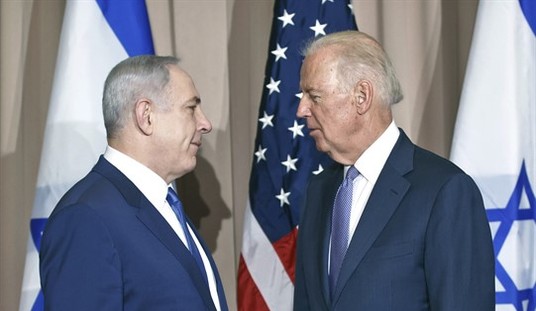
Yesterday, survivors of the smuggler’s boat that overturned off the coast of Libya rest on the deck of an Italian Coast Guard ship in Valletta’s Grand Harbour. The UN estimates more than 800 people were believed to have drowned in the weekend sinking of a boat packed with migrants trying to reach Europe, making it the deadliest such disaster in the Mediterranean. (AP Photo/Lino Azzopardi, File)
According to EU’s border chief, up to one million refugees are waiting on the Libyan beach to board ship for Europe. “Up to one million migrants could reach Europe from Libya amid collapsing security in the northern African country, the European Union’s border agency chief has warned.”
Frontex executive director Fabrice Leggeri said he expects asylum seekers’ crossings to skyrocket in 2015 and urged EU governments to ready themselves to “face a way more difficult situation than last year”.
“We are told there are between 500,000 and one million migrants ready to leave from Libya,” Leggeri told Italian news agency Ansa. “We have to be aware of the risks”.
One of the more interesting aspects of this flood of human misery is that it is not entirely spontaneous. Jihadi groups are doing their best to encourage it.
With the country now locked in a three-way power-struggle pitting government troops against different Islamist groups including Islamic State (Isis) affiliates, fears have been raised that extremists could mingle with the hundreds of migrants crossing by boat every week or drastically increase the number of crossings to strain EU border forces.
“We have evidence that migrants have been forcibly boarded on vessels at gunpoint,” Leggeri said. “I do not have elements to say they were terrorists but there are worries among states.”
That would not be surprising. In 2004 Europe agreed to pay Muhammar Gaddafi four billion pounds a year in exchange for a promise to halt people smuggling to Europe.
Experts have also drawn links between the massive rise in would-be migrants and a so-called ‘deal in the desert’ struck by Tony Blair in 2004 – which saw the late Muammar Gaddafi agree to crack down on human traffickers as well as renouncing Libya’s possession of WMDs and decommissioning the country’s chemical and nuclear weapons programs.
In 2008 Gaddafi sought to stiff the European Union for £4.1 billion a year in return for halting the flows of migrants in and out of Libya. …
As Blair’s much touted ‘deal in the desert’ turned sour, Gaddafi gave people smugglers in Zuwara the green light to resume their trade and the migrant routes have flourished ever since.
The people-smuggling networks once controlled by the Duck of Death have almost certainly been taken over by the Jihadis, who have turned them to their own purposes. This view is not yet widely shared. The general perception is that the refugee flood is a “humanitarian crisis.” The Washington Post, for example, exhorts the Europeans to take more migrants to solve the problem. “Europe needs to take a lead role in solving the African migrant crisis.”
Only the European Union can help these migrants, especially once they take to the sea. Shamefully, however, governments under pressure from domestic anti-immigrant parties have shrunk from the task. Last year Italy undertook its own, much-praised operation to rescue people from boats, saving many; but it was scaled back in October after other governments declined to join in and some complained, wrongheadedly, that the effort itself might be attracting migrants. In recent months a much smaller E.U. search-and-rescue mission has been limited to Italy’s territorial waters, making it far more likely that sinkings and other accidents will lead to mass deaths.
Thankfully, the weekend disaster appears to have galvanized — or maybe shamed — E.U. governments, who agreed to hold a summit meeting Thursday to consider solutions. The starting point should be obvious: the resumption of a large-scale search-and-rescue operation like that abandoned by Italy. But European leaders should also consider providing more legal ways for African refugees to seek refuge in their countries, without having to board smuggling boats; and they should consider more forceful steps to combat the smugglers and to help restore order in Libya. What shouldn’t be an option is continuing to ignore the humanitarian crisis spilling into the Mediterranean.
While the refugee flood is most certainly a humanitarian tragedy, it is very probably a deliberate component of the rapid advance of Islamist forces through North Africa, Arabia and the Levant. The probable reason why the establishment can’t see this is because they’ve willed themselves not to see the war. The constant mantra is that there is no war on terror; that the enemy is nothing to do with Islam. See the war and you can see the tactic. In fact, it is reminiscent of the old Nazi 1940 method of driving refugees onto the roads before them to tie up the French while the Panzers advanced behind them.
France’s vaunted Maginot Line failed to hold back the Nazi onslaught and the German Blitzkrieg poured into France. (see Blizkrieg, 1940) Thousands of civilians fled before it. Traveling south in cars, wagons, bicycles or simply on foot, the desperate refugees took with them what few possessions they could salvage. It wasn’t long before the roads were impassable to the French troops who were headed north in an attempt to reach the battlefield. …
Its aim was to create panic amongst the civilian population. A civil population on the move can be absolute havoc for a defending army trying to get its forces to the war front. With so much focus placed on the frontline, if this could be penetrated then the ensuing doubt, confusion and rumour were sure to paralyse both the government and the defending military.
This was very effective and France fell in 40 days. The 2015 boat people tide is the equivalent of the 1940 stream of refugees. That Blitzkrieg kind of comparison may be unfamiliar ancient history to today’s leaders. But they may still be familiar with the more current term of ethnic cleansing, which is really an updated term for an older concept, the displaced person (DP). One of the interesting characteristics of the recent wars in Islamic regions is how many DPs they’ve generated.
“The number of refugees, asylum seekers and internally displaced people worldwide has exceeded 50 million for the first time since World War II, a United Nations report shows.” The biggest number of refugees come from Syria, Afghanistan, Somalia, Sudan and South Sudan, according to a UNHCR report. “The top 10 source countries of refugees combined accounted for 78 per cent of all refugees under UNHCR’s mandate. The top three alone – the Syrian Arab Republic, Afghanistan, and Somalia – made up 52 per cent. Half of these 10 countries, it should be noted, are in sub-Saharan Africa.”
Chaos, in ISIS’ view, is a weapon and as the refugee report shows, it is a massive weapon. Perhaps not coincidentally, deliberate population displacement largely coincides with Jihadi doctrine. The Management of Savagery, which is the Mein Kampf of the ISIS movement, advises the destruction of ordinary life. It
argues that carrying out a campaign of constant violent attacks in Muslim states will eventually exhaust their ability and will to enforce their authority, and that as the writ of the state withers away, chaos—or ‘savagery’—will ensue. Jihadists can take advantage of this savagery to win popular support …
Management of Savagery advocates destroying people’s lives so they are left with no choice but to build a new world — the Caliphate — because the old world is gone. The Management of Savagery is going to ride the wave of chaos to reestablish the return of true Islam to power.
We must make this battle very violent, such that death is a heartbeat away … When savagery happens in several regions … a spontaneous kind of polarization begins to happen among the people who live in the region of chaos. The people, seeking security, rally around the great personages of the country or a party organization or a jihadi organization or a military organization composed of the remainders of the army or the police of the regimes of apostasy.
Set against a highly sophisticated, albeit perverted strategy that one might call deliberate “inhumanitarianism” and carried out by iron-willed terrorists, the half-baked liberal ideology in opposition to it has all the force of wet spaghetti. In many ways the image of jihadi leaders as illiterate rubes in comparison to the sophisticated likes of Hillary Clinton is a complete inversion of the truth. The jihadi enemy is quick, intelligent and ruthless by comparison to the EU bureaucracy and the geniuses of the Obama administration. Despite the disparity in material resources, the contest is closer than one might think.
[jwplayer mediaid=”42916″]
Recently purchased by readers:
Building the H Bomb, A Personal History [Kindle Edition]
Parasite Rex, Inside the Bizarre World of Nature’s Most Dangerous Creatures [Kindle Edition]
The Vikings [Kindle Edition]
Possibly worth buying:
The Three Languages of Politics [Kindle Edition]
The War That Forged a Nation, Why the Civil War Still Matters
Thieves of State: Why Corruption Threatens Global Security
Is the American Century Over?, Joseph Nye
The Assassins, Bernard Lewis. A comprehensive, readable, and authoritative account of history’s first terrorists.
Red Notice, A real-life political thriller about an American financier in the Wild East of Russia, the murder of his principled young tax attorney, and his dangerous mission to expose the Kremlin’s corruption.
Did you know that you can purchase some of these books and pamphlets by Richard Fernandez and share them with you friends? They will receive a link in their email and it will automatically give them access to a Kindle reader on their smartphone, computer or even as a web-readable document.
The War of the Words for $3.99, Understanding the crisis of the early 21st century in terms of information corruption in the financial, security and political spheres
Rebranding Christianity for $3.99, or why the truth shall make you free
The Three Conjectures at Amazon Kindle for $1.99, reflections on terrorism and the nuclear age
Storming the Castle at Amazon Kindle for $3.99, why government should get small
No Way In at Amazon Kindle $8.95, print $9.99. Fiction. A flight into peril, flashbacks to underground action.
Storm Over the South China Sea $0.99, how China is restarting history in the Pacific
Tip Jar or Subscribe or Unsubscribe to the Belmont Club









Join the conversation as a VIP Member